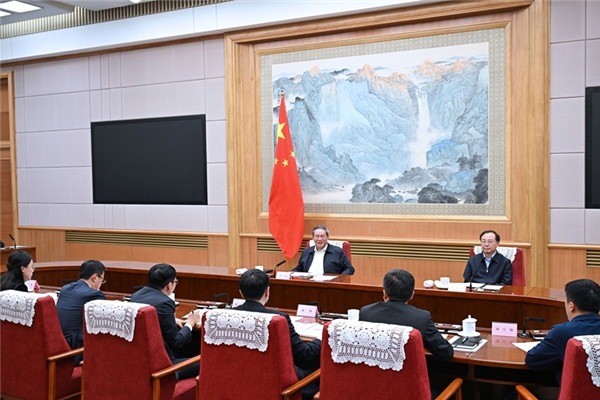Dutch govt's curbs on chip maker decried

China will respond strongly to the Dutch government's politically motivated measures to curb the operations of Nexperia, a Chinese-owned semiconductor company based in the Netherlands, as such moves set a dangerous precedent for global business, industry experts said on Thursday.
Their comments came after the Dutch government announced earlier this week that it had taken control of Nexperia, and the company said its CEO and shareholder Zhang Xuezheng had been suspended from his post following a court order.
Headquartered in Nijmegen, Netherlands, Nexperia is a subsidiary of China's Wingtech Technology Co and manufactures chips for consumer electronics, automobiles and industrial applications.
Xiang Ligang, an industry veteran and director-general of the Zhongguancun Modern Information Consumer Application Industry Technology Alliance, a telecom industry association, said the Chinese government will not sit idle in the face of hegemonism, and will take tough measures to prevent the recurrence of such incidents.
Citing a court document published on Tuesday, CNN reported that United States officials told the Dutch government that Zhang would likely have to be replaced if Nexperia were to be exempted from the US list of companies considered threats to its national security or foreign policy interests. Wingtech was placed on the US entity list in 2024.
Xiang, the industry veteran, said that US sanctions disrupted Nexperia's normal operations and threatened Europe's economic security.
"Instead of resisting Washington's coercion, the Dutch government chose to pressure a Chinese company. It is obviously blaming the wrong side," he said.
On Monday, Foreign Ministry spokesman Lin Jian said that China firmly opposes overstretching the concept of national security and making discriminatory moves that target companies from certain countries.
"The relevant country should uphold market principles and refrain from politicizing trade issues," Lin said at a regular news briefing in Beijing.
At an investors' conference held on Wednesday, Wingtech's Chairman Yang Mu said the company remains confident in its long-term value. "That's why, even after the incident, we continued our equity incentive plan," he said.
Yang added that Wingtech is confident in its ability to streamline and strengthen domestic supply chains, with China already accounting for 80 percent of its production and half of its sales.
Zhang Yanru, Wingtech's chief financial officer, said the company is consulting international law firms to pursue "all possible legal remedies" to protect its shareholders.
The CFO disclosed that the Dutch authorities had demanded the creation of a supervisory board with veto power over key issues, including intellectual property, investment, and research and development hiring in China, a condition she said would mean "ceding partial control of Nexperia".
The Dutch side also urged a partial share sale to European Union investors and a potential European listing, citing security concerns, she said.
"Some of Nexperia's current executives have shown a positive attitude toward the proposal and have been exploring the idea, but given the complexity of the procedures involved, progress has been slow," she added.
Wingtech, which was founded in 2006, acquired a controlling stake in Nexperia in the late 2010s. Following this acquisition, Wingtech led Nexperia to achieve significant operational improvements.
'Discriminatory restrictions'
Liang Linlin, director of communication and research at the China Chamber of Commerce to the EU, said that since its acquisition by Wingtech, Nexperia has fully complied with all applicable regulations and made sustained, substantial contributions to the semiconductor ecosystem in the Netherlands and Europe.
"Over the past five years, the company has paid more than 130 million euros ($152 million) in taxes to the Dutch treasury, created thousands of skilled local jobs, lifted R&D spending by 150 percent since its acquisition, and raised annual patent filings from just over 10 to more than 100 — all of which delivered a marked boost to Europe's technological depth and innovative edge," Liang said.
"The decision made by the Netherlands erodes legal certainty and market fairness — the very principles underpinning the EU's single market. In doing so, the Dutch government risks not only damaging Chinese-invested enterprises, but also undermining the open, competitive business environment that Europe has long been proud of," she added.
The China Semiconductor Industry Association also condemned the Dutch government's move, voicing "firm opposition" to what it called an abuse of national security issues and "discriminatory restrictions" on Chinese enterprises.
"Such measures threaten to fracture the open, collaborative global semiconductor ecosystem," the association said in a statement, pledging full support for member companies defending their legitimate rights and interests.




































